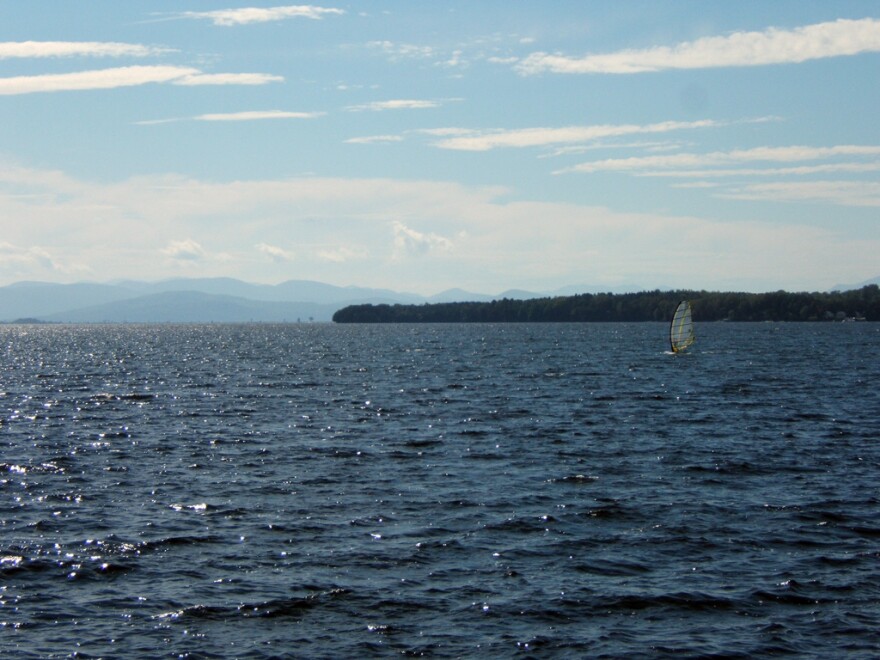A new $20 million federal grant will bring together scientists from a number of Vermont colleges and universities to study what makes some sections of the Lake Champlain watershed more resilient after extreme weather events.
The five-year grant from the National Science Foundation is one of the largest ever received by the University of Vermont for the study of Lake Champlain.
Research teams will collect data to determine where the watershed is most and least resilient. Sensors will be placed in streams, the lake and in soil. Computer models will be created to help assess adjacent land use and create management scenarios.
The effort will be led by Vermont EPSCoR – the Experimental Program to Stimulate Competitive Research. University of Vermont Distinguished Professor Judith Van Houten directs the program. “Extreme weather events are going to cause damage in the watershed and undermine the adaptive interventions that we have been helping state policymakers come up with. So the concept of resilience is that in the watershed there are places that are damaged but absorb and recover and respond to the severe event. But other parts of the watershed are heavily damaged, don't recover. We're going to combine water and soil sensors so that we'll know in the watershed what’s happening with these severe events.”
One innovative aspect of the research includes input from social scientists. Van Houten says it will feature heavily in their research. “We view the basin as a human-natural coupled system. It isn't just enough to understand the hydrology, the water dynamics, of the lake. You have to understand how it’s used, how it’s developed, how its future is going to be guided. And that’s all the human dimensions. So we are very heavily involving social scientists.”
Lake Champlain Committee Executive Director Lori Fisher, who is not directly involved with the new research grant, says the EPSCoR project has ambitious goals that will help guide policy and actions to better protect the watershed. “There's no question our climate is changing. We’re seeing the effects of that. We still I think are behind in making the infrastructure investments and the policy changes in order to adapt and really ensure that we are resilient. There’s $20 million for this broad based research effort. We have to make similar investments to our infrastructure and to really protect the resource that we're so dependent upon.”
Lake Champlain International Executive Director James Ehlers says the grant makes sense as a resource for an educational institution. But he adds there’s already enough known to address resiliency issues. “Science is important but science without action is pointless. We continue to study this problem. It’s easier than actually creating and implementing change. If we were serious about what resiliency and freshwater health we could solve this in a short period of time. Stop building on riverbanks industrial agriculture on riverbanks. And then we can study how fast the improvements incurred. That's the kind of study I would like.”
The University of Vermont will partner with colleges across the state and other key stakeholders including the Lake Champlain Basin Program, the Vermont Agency of Natural Resources, and partners in Quebec and Lake George. Scholarships will also be provided to Vermont high school, middle school and undergraduate students to participate in the research.





